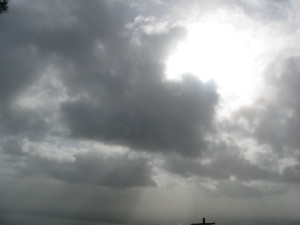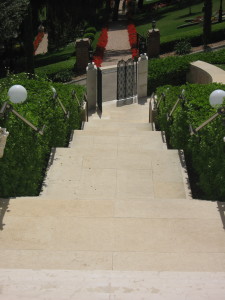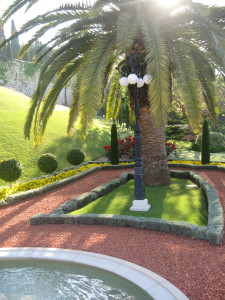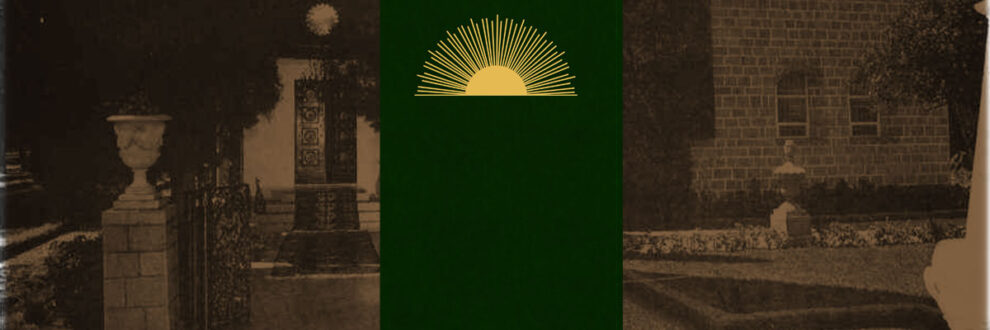 Haji ‘Abdu’l-Vahhab
Haji ‘Abdu’l-Vahhab
Born: Unknown
Death: Unknown
Place of Birth: Yazd or Qazvin, Iran
Location of Death: Unknown
Burial Location: No cemetery details
Among those who, in the city of Yazd, were awakened by the message of that bearer of the light of God, was ‘Abdu’l-Vahhab, a man of great piety, upright and God fearing. The story of this youth starts when the Báb summoned to His presence Mulla Aliy-i-Bastami, and addressed to him words of cheer and loving-kindness.
“Your faith,” The Báb told Mulla Ali-i-Bastami, “must be immovable as the rock, must weather every storm and survive every calamity. Suffer not the denunciations of the foolish and the calumnies of the clergy to afflict you, or to turn you from your purpose. For you are called to partake of the celestial banquet prepared for you in the immortal Realm. You are the first to leave the House of God, and to suffer for His sake. If you be slain in His path, remember that great will be your reward, and goodly the gift which will be bestowed upon you.”
 No sooner were these words uttered than Mulla Ali arose from his seat and set out to prosecute his mission. At about a farsang’s distance from Shiraz he was overtaken by a youth who, flushed with excitement, impatiently asked to speak to him. His name was ‘Abdu’l-Vahhab. “I beseech you,” he tearfully entreated Mulla Ali, “to allow me to accompany you on your journey. Perplexities oppress my heart; I pray you to guide my steps in the way of Truth. Last night, in my dream, I heard the crier announce in the market-street of Shiraz the appearance of the Imam Ali, the Commander of the Faithful. He called to the multitude: ‘Arise and seek him. Behold, he plucks out of the burning fire charters of liberty and is distributing them to the people. Hasten to him, for whoever receives them from his hands will be secure from penal suffering, and whoever fails to obtain them from him, will be bereft of the blessings of Paradise.’ Immediately I heard the voice of the crier, I arose and, abandoning my shop, ran across the market-street of Vakil to a place where my eyes beheld you standing and distributing those same charters to the people. To everyone who approached to receive them from your hands, you would whisper in his ear a few words which instantly caused him to flee in consternation and exclaim: ‘Woe betide me, for I am deprived of the blessings of Ali and his kindred! Ah, miserable me, that I am accounted among the outcast and fallen!’ I awoke from my dream and, immersed in an ocean of thought, regained my shop. Suddenly I saw you pass, accompanied by a man who wore a turban, and who was conversing with you. I sprang from my seat and, impelled by a power which I could not repress, ran to overtake you. To my utter amazement, I found you standing upon the very site which I had witnessed in my dream, engaged in the recital of traditions and verses. Standing aside, at a distance, I kept watching you, wholly unobserved by you and your friend. I heard the man whom you were addressing, impetuously protest: ‘Easier is it for me to be devoured by the flames of hell than to acknowledge the truth of your words, the weight of which mountains are unable to sustain!’ To his contemptuous rejection you returned this answer: `Were all the universe to repudiate His truth, it could never tarnish the unsullied purity of His robe of grandeur.’ Departing from him, you directed your steps towards the gate of Kaziran. I continued to follow you until I reached this place.”
No sooner were these words uttered than Mulla Ali arose from his seat and set out to prosecute his mission. At about a farsang’s distance from Shiraz he was overtaken by a youth who, flushed with excitement, impatiently asked to speak to him. His name was ‘Abdu’l-Vahhab. “I beseech you,” he tearfully entreated Mulla Ali, “to allow me to accompany you on your journey. Perplexities oppress my heart; I pray you to guide my steps in the way of Truth. Last night, in my dream, I heard the crier announce in the market-street of Shiraz the appearance of the Imam Ali, the Commander of the Faithful. He called to the multitude: ‘Arise and seek him. Behold, he plucks out of the burning fire charters of liberty and is distributing them to the people. Hasten to him, for whoever receives them from his hands will be secure from penal suffering, and whoever fails to obtain them from him, will be bereft of the blessings of Paradise.’ Immediately I heard the voice of the crier, I arose and, abandoning my shop, ran across the market-street of Vakil to a place where my eyes beheld you standing and distributing those same charters to the people. To everyone who approached to receive them from your hands, you would whisper in his ear a few words which instantly caused him to flee in consternation and exclaim: ‘Woe betide me, for I am deprived of the blessings of Ali and his kindred! Ah, miserable me, that I am accounted among the outcast and fallen!’ I awoke from my dream and, immersed in an ocean of thought, regained my shop. Suddenly I saw you pass, accompanied by a man who wore a turban, and who was conversing with you. I sprang from my seat and, impelled by a power which I could not repress, ran to overtake you. To my utter amazement, I found you standing upon the very site which I had witnessed in my dream, engaged in the recital of traditions and verses. Standing aside, at a distance, I kept watching you, wholly unobserved by you and your friend. I heard the man whom you were addressing, impetuously protest: ‘Easier is it for me to be devoured by the flames of hell than to acknowledge the truth of your words, the weight of which mountains are unable to sustain!’ To his contemptuous rejection you returned this answer: `Were all the universe to repudiate His truth, it could never tarnish the unsullied purity of His robe of grandeur.’ Departing from him, you directed your steps towards the gate of Kaziran. I continued to follow you until I reached this place.”
Mulla Ali tried to appease his troubled heart and to persuade him to return to his shop and resume his daily work. “Your association with me,” he urged, “would involve me in difficulties. Return to Shiraz and rest assured, for you are accounted of the people of salvation. Far be it from the justice of God to withhold from so ardent and devoted a seeker the cup of His grace, or to deprive a soul so athirst from the billowing ocean of His Revelation.” The words of Mulla Ali proved of no avail. The more he insisted upon the return of Abdu’l-Vahhab, the louder grew his lamentation and weeping. Mulla Ali finally felt compelled to comply with his wish, resigning himself to the will of God.
Haji Abdu’l-Majid, the father of ‘Abdu’l-Vahhab, has often been heard to recount, with eyes filled with tears, this story: “How deeply,” he said, “I regret the deed I committed. Pray that God may grant me the remission of my sin. I was one among the favoured in the court of the sons of the Farman-Farma, the governor of the province of Fars. Such was my position that none dared to oppose or harm me. No one questioned my authority or ventured to interfere with my freedom. Immediately I heard that my son ‘Abdu’l-Vahhab had forsaken his shop and left the city, I ran out in the direction of the Kaziran gate to overtake him. Armed with a club with which I intended to beat him, I enquired as to the road he had taken. I was told that a man wearing a turban had just crossed the street and that my son was seen following him. They seemed to have agreed to leave the city together. This excited my anger and indignation. How could I tolerate, I thought to myself, such unseemly behavior on the part of my son, I, who already hold so privileged a position in the court of the sons of the Farman-Farma? Nothing but the severest chastisement, I felt, could wipe away the effect of my son’s disgraceful conduct.
“I continued my search until I reached them. Seized with a savage fury, I inflicted upon Mulla Ali unspeakable injuries. To the strokes that fell heavily upon him, he, with extraordinary serenity, returned this answer: `Stay your hand, O Abdu’l-Majid, for the eye of God is observing you. I take Him as my witness, that I am in no wise responsible for the conduct of your son. I mind not the tortures you inflict upon me, for I stand prepared for the most grievous afflictions in the path I have chosen to follow. Your injuries, compared to what is destined to befall me in future, are as a drop compared to the ocean. Verily, I say, you shall survive me, and will come to recognise my innocence. Great will then be your remorse, and deep your sorrow.’ Scorning his remarks, and heedless of his appeal, I continued to beat him until I was exhausted. Silently and heroically he endured this most undeserved chastisement at my hands. Finally, I ordered my son to follow me, and left Mulla Ali to himself. “On our way back to Shiraz, my son related to me the dream he had dreamt. A feeling of profound regret gradually seized me. The blamelessness of Mulla Ali was vindicated in my eyes, and the memory of my cruelty to him continued long to oppress my soul. Its bitterness lingered in my heart until the time when I felt obliged to transfer my residence from Shiraz to Baghdad. From Baghdad I moved to Kazimayn, where ‘Abdu’l-Vahhab established his business. A strange mystery brooded over his youthful face. He seemed to be concealing from me a secret which appeared to have transformed his life. And when, in the year 1267 A.H., Bahá’u’lláh journeyed to Iraq and visited Kazimayn, ‘Abdu’l-Vahhab fell immediately under the spell of His charm and pledged his undying devotion to Him. A few years later, when my son had suffered martyrdom in Tihran and Bahá’u’lláh had been exiled to Baghdad, He, with infinite loving-kindness and mercy, awakened me from the sleep of heedlessness, and Himself taught me the message of the New Day, washing away with the waters of Divine forgiveness the stains of that cruel act.” [1]
Source:
1 Nabil. The Dawn Breakers. Wilmette, Illinois: Bahá’í Publishing Trust. Chapter I p. 7 and Chapter III p. 87-90
Images:
(c) Baha’i Chronicles







